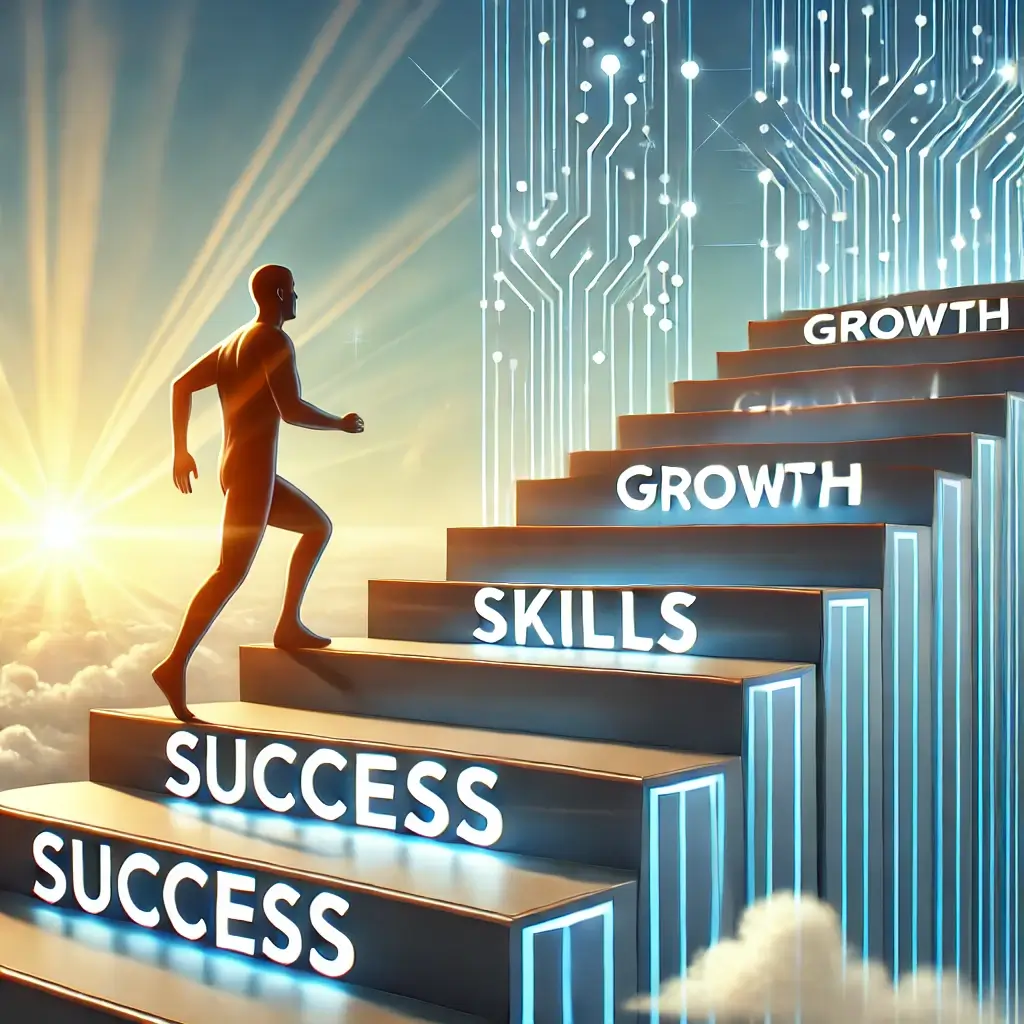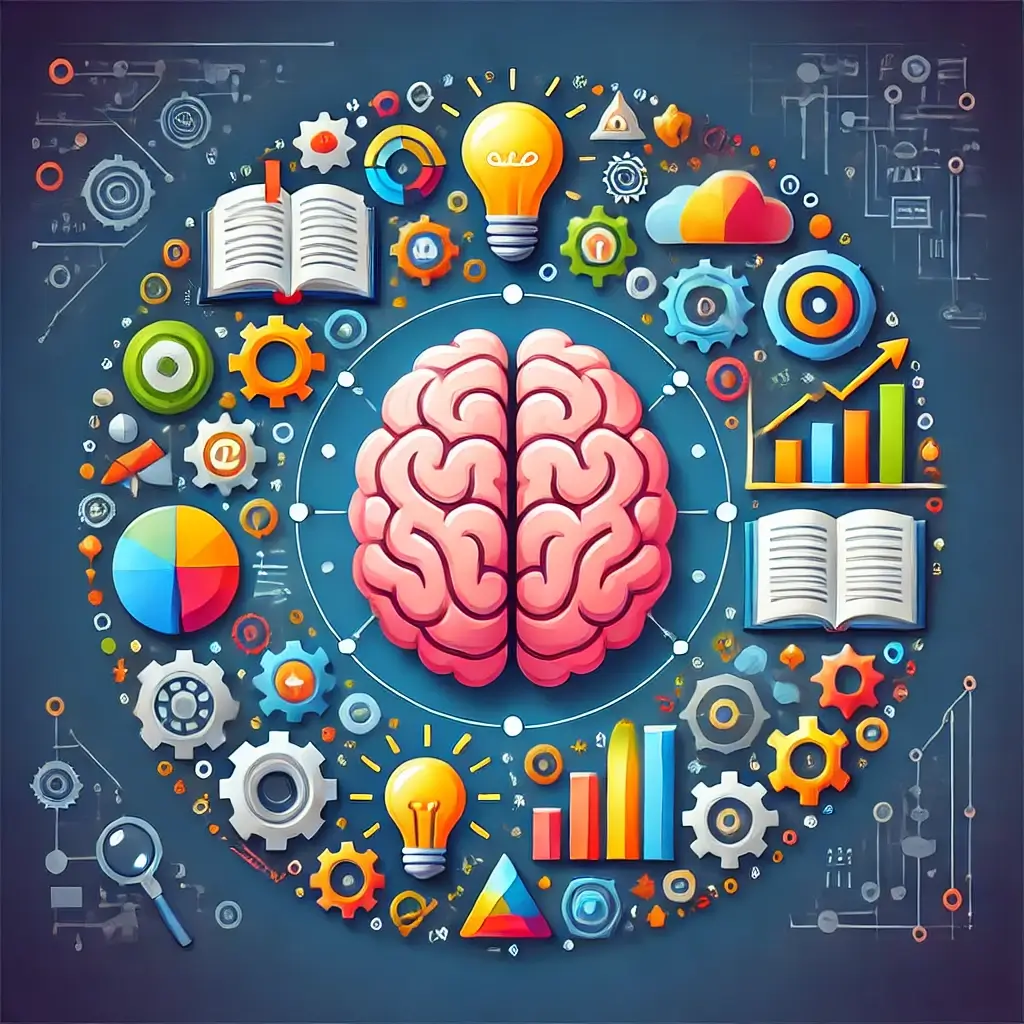Introduction – What is personal development and why it matters
Personal development refers to the never-ending process of self-improvement—mentally, emotionally, and professionally. Setting goals, learning new skills, and developing good habits are all part of personal development to base yourself. Be it productivity enhancement, better communication, or increased self-confidence, it is indeed very important in achieving success and fulfillment.
Table of Contents
Why Personal Development Matters
Investing in personal development can have a profound impact on various aspects of life, including:
- Self-Awareness: Helps you understand your strengths, weaknesses, and values.
- Career Growth: Enhances skills, increasing opportunities for professional success.
- Emotional Well-Being: Promotes self-confidence, resilience, and stress management.
- Better Relationships: Improves communication and interpersonal skills.
- Goal Achievement: Provides motivation and direction for lifelong success.

How Personal Development Works
The journey of personal development is unique for everyone, but it typically involves:
- Self-Reflection: Identifying areas of improvement and setting clear goals.
- Learning and Growth: Acquiring new knowledge, habits, and skills.
- Action and Implementation: Applying what you learn in real-life situations.
- Evaluation and Adjustment: Reviewing progress and making necessary changes.
Related Article:https://mohatop7.com/business/
The Key Areas of Personal Development
Personal development is an umbrella term that covers different facets of life, thereby aiding an individual develop and enhance into a wholesome person. By focally addressing specific areas in regard to self-development, one can positively develop himself or herself in natural features such as skills, mindset, and overall well-being. The key areas of personal development, stated below, matter because..
1. Mental Growth
Mental development involves expanding your knowledge, improving critical thinking, and developing a growth mindset. This can be achieved through:
- Reading books and learning new skills
- Practicing problem-solving and decision-making
- Engaging in lifelong learning opportunities

2. Emotional Intelligence
Emotional intelligence (EQ) is the ability to recognize, understand, and manage your emotions and those of others. Strong EQ leads to:
- Better relationships and communication
- Improved stress and conflict management
- Greater self-awareness and emotional resilience
3. Physical Well-Being
Your physical health plays a crucial role in personal development. A strong body supports a strong mind, and taking care of yourself leads to:
- Increased energy and productivity
- Better stress management
- Enhanced focus and motivation
Ways to improve physical well-being:
- Regular exercise and proper nutrition
- Sufficient rest and sleep
- Healthy lifestyle habits
4. Social Skills and Relationships
Building strong social skills helps in both personal and professional life. Key areas of social development include:
- Effective communication and active listening
- Developing empathy and understanding different perspectives
- Building meaningful connections and networks
5. Career and Professional Growth
Advancing in your career is a fundamental part of personal development. This involves:
- Learning new job-related skills
- Setting career goals and working toward them
- Seeking mentorship and networking opportunities
6. Financial Literacy
Understanding and managing finances is a key aspect of personal development. Financial literacy helps you:
- Budget and save effectively
- Make informed investment decisions
- Plan for long-term financial security
7. Spiritual Growth
For many, personal growth includes spiritual or self-reflective practices that provide purpose and inner peace. This may involve:
- Meditation or mindfulness practices
- Exploring personal values and beliefs
- Engaging in gratitude and self-reflection
Benefits of Personal Development
Personal development is a lifelong endeavor of enhancing different aspects of life, from mental well-being to one’s success in life. This journey allows a person to reach his or her potential and develop into a completely fulfilled person. The list below presents some of the important benefits of personal development.
1. Increased Self-Awareness
Personal development helps individuals understand their strengths, weaknesses, values, and goals. Through self-reflection and growth, people can make informed decisions that align with their purpose.
2. Improved Mental and Emotional Well-Being
Developing a growth mindset and emotional resilience helps individuals manage stress, anxiety, and challenges more effectively. Personal development fosters:
- Better emotional control
- Positive thinking habits
- Increased self-confidence
3. Enhanced Productivity and Motivation
By setting clear goals and improving time management, personal development boosts productivity and motivation. Key benefits include:
- Better focus and efficiency
- Greater sense of purpose
- Increased drive to achieve success
4. Stronger Interpersonal and Communication Skills
Developing social skills is a crucial part of personal growth. Benefits include:
- Improved communication and active listening
- Stronger relationships and networking opportunities
- Increased emotional intelligence (EQ)
5. Career Growth and Professional Success
Continuous learning and skill development lead to career advancement. Personal development helps individuals:
- Acquire new skills and knowledge
- Improve leadership and decision-making abilities
- Increase job satisfaction and career opportunities
6. Financial Stability and Smart Decision-Making
Understanding financial literacy and personal growth strategies leads to better financial management. Benefits include:
- Improved budgeting and saving habits
- Smarter investment choices
- Long-term financial security
7. Greater Life Satisfaction and Fulfillment
Personal development enhances overall well-being, allowing individuals to lead more meaningful and purposeful lives. By setting and achieving personal goals, people experience:
- A sense of fulfillment and happiness
- Greater self-confidence and independence
- A balanced and well-rounded lifestyle
Effective Strategies for Personal Development
Personal development is a continuous journey of self-improvement that requires dedication, discipline, and the right strategies. Whether you want to develop new skills, improve your mindset, or enhance your well-being, applying effective strategies can help you achieve your goals faster. Below are some of the best strategies for personal development.
1. Set Clear Goals
Having well-defined goals gives you a sense of direction and motivation. Follow the SMART goal-setting method:
- Specific – Clearly define what you want to achieve.
- Measurable – Track progress with measurable milestones.
- Achievable – Set realistic and attainable goals.
- Relevant – Align goals with your values and aspirations.
- Time-bound – Set deadlines to stay accountable.
2. Develop a Growth Mindset
A growth mindset helps you embrace challenges and view failures as learning opportunities. To cultivate this mindset:
- Replace negative self-talk with positive affirmations.
- Learn from mistakes instead of fearing them.
- Stay open to feedback and constructive criticism.
3. Build Healthy Habits
Success in personal development comes from consistency. Developing positive habits such as:
- Waking up early and following a morning routine.
- Exercising regularly to boost energy and focus.
- Practicing gratitude and mindfulness daily.
4. Continuously Learn and Improve Skills
Lifelong learning is essential for personal development. Expand your knowledge by:
- Reading books related to self-improvement and your field of interest.
- Taking online courses or attending workshops.
- Seeking mentorship from experienced individuals.
5. Practice Self-Reflection
Self-reflection helps you assess your growth and identify areas for improvement. Methods include:
- Keeping a journal to track progress and challenges.
- Meditating or setting aside quiet time for introspection.
- Asking yourself thought-provoking questions about your goals and actions.
6. Surround Yourself with Positive Influences
The people you spend time with significantly impact your growth. To foster personal development:
- Build relationships with supportive and motivated individuals.
- Engage in communities that share your interests and goals.
- Limit interactions with negativity and toxic environments.
7. Manage Time Effectively
Time management is crucial for achieving success in personal development. Some useful techniques include:
- The Pomodoro Technique – Work in focused intervals with short breaks.
- The Eisenhower Matrix – Prioritize tasks based on urgency and importance.
- Time Blocking – Schedule specific time slots for different activities.
8. Take Care of Your Physical and Mental Health
Your physical and mental well-being play a huge role in personal development. Prioritize:
- Regular exercise and a balanced diet.
- Sufficient sleep and relaxation.
- Stress management through mindfulness or therapy.
Common Challenges and How to Overcome Them
Personal development is a really gratifying journey, but it does come with certain tricky challenges that can affect its progression and cause a lot of frustration. Knowing about those obstacles and what they are about could help one keep on track and encourage a long-term growth process. Just to mention a few common challenges in personal development, with some suggestions.
1. Lack of Motivation
Motivation fluctuates, and at times, it can be hard to stay committed to personal growth. This is often due to:
- Unclear goals or lack of purpose
- Feeling overwhelmed by big tasks
- Temporary setbacks or slow progress
How to Overcome It:
- Set clear, achievable goals and break them into small steps.
- Remind yourself why personal development is important.
- Use visualization techniques and positive affirmations.
2. Fear of Failure
Fear of failure can prevent people from taking action or trying new things. It can lead to self-doubt and hesitation.
How to Overcome It:
- Reframe failure as a learning opportunity rather than a setback.
- Start with small, low-risk challenges to build confidence.
- Remember that every successful person has faced failures.
3. Procrastination
Delaying tasks and avoiding responsibilities can hinder personal growth. Procrastination is often caused by:
- Feeling overwhelmed by the task at hand
- Lack of time management skills
- Fear of not doing something perfectly
How to Overcome It:
- Use the Pomodoro Technique (work for 25 minutes, then take a 5-minute break).
- Break large tasks into smaller, manageable steps.
- Set deadlines and hold yourself accountable.
4. Negative Self-Talk and Self-Doubt
Self-doubt can hold people back from reaching their full potential. It often manifests as:
- Constant self-criticism
- Fear of not being good enough
- Comparing yourself to others
How to Overcome It:
- Replace negative thoughts with positive affirmations.
- Focus on progress, not perfection.
- Surround yourself with supportive and encouraging people.
5. Lack of Discipline and Consistency
Without discipline, it’s easy to fall back into old habits and lose momentum.
How to Overcome It:
- Create a daily routine that supports personal growth.
- Use habit trackers to stay consistent.
- Reward yourself for small milestones and achievements.
6. Time Management Struggles
Many people struggle to find time for personal development due to busy schedules and distractions.
How to Overcome It:
- Prioritize tasks using the Eisenhower Matrix (urgent vs. important tasks).
- Set specific time blocks for learning, self-care, and reflection.
- Reduce distractions like social media or unnecessary commitments.
7. Difficulty Adapting to Change
Change can be uncomfortable, but it’s essential for growth. Many people resist change due to:
- Fear of the unknown
- Comfort with old routines
- Uncertainty about new challenges
How to Overcome It:
- Focus on the benefits of change rather than the discomfort.
- Take small steps to ease into new situations.
- Remind yourself that growth comes from stepping outside your comfort zone.
Also see:https://www.skillsyouneed.com/ps/personal-development.html
Recommended Books and Resources
Books and other resources remain the most powerful means of gaining knowledge on any topic. Be it self-development, technology, history, or any other field, the right content can significantly influence one’s journey towards the mastery of the subject. Below is a shortlist of recommended books and resources in varying fields that should provide a well-balanced approach towards enriched understanding.
1. Self-Development and Personal Growth
- “Atomic Habits” by James Clear
This book delves into how small changes can lead to significant personal growth. Clear’s writing is clear and practical, offering actionable strategies for building good habits and breaking bad ones. - “The Power of Now” by Eckhart Tolle
For those interested in mindfulness and living in the present moment, Tolle’s book provides deep insights into how to achieve mental clarity and peace.
2. Technology and Innovation
- “The Innovators” by Walter Isaacson
This book chronicles the history of the people who created the computer and the Internet. It is a must-read for anyone interested in the technological revolution and innovation. - “The Lean Startup” by Eric Ries
A guide to starting and growing a business with minimal resources, it’s a great resource for aspiring entrepreneurs and innovators.
3. Finance and Investing
- “The Intelligent Investor” by Benjamin Graham
Widely regarded as one of the best books on investing, it provides timeless advice on making smart financial decisions and understanding market behavior. - “Rich Dad Poor Dad” by Robert Kiyosaki
A personal finance classic that explores the mindset differences between the wealthy and the poor, encouraging readers to think differently about money and investing.
4. History and Society
- “Sapiens: A Brief History of Humankind” by Yuval Noah Harari
This thought-provoking book takes readers on a journey through the history of humanity, examining how Homo sapiens came to dominate the Earth. - “The Origins of Political Order” by Francis Fukuyama
Fukuyama explores the history of political institutions and their development, offering a deep dive into how governments and societies have evolved.
5. Science and Nature
- “A Brief History of Time” by Stephen Hawking
For those interested in physics, cosmology, and the mysteries of the universe, Hawking’s classic work explains complex scientific concepts in an accessible way. - “The Gene: An Intimate History” by Siddhartha Mukherjee
This book provides a fascinating look at the history of genetics and its impact on human evolution and medical science.
6. Online Learning Platforms and Websites
- Coursera
With a wide range of courses from top universities around the world, Coursera is a great platform for learning anything from computer science to business and personal development. - Udemy
A platform known for its affordable courses on a variety of topics, Udemy offers both beginner and expert-level lessons.
7. Podcasts and YouTube Channels
- “The Tim Ferriss Show”
Tim Ferriss interviews successful individuals, providing insights on productivity, health, and business. - “Crash Course” on YouTube
A series of educational videos that cover topics like history, science, and literature in a fun and digestible format.
Conclusion
In short, books and resources of wisdom are important for personal and professional growth. There are those who would like to work on their skills, gain knowledge related to their profession, or even a different field of interest, and the right books and materials are the ones that can make an important difference.
Using the aforementioned materials-from self-development guides to online sources-helps you to embark on your journey of continuous learning and personal development. The critical point is to choose the right resources aimed at your interests and aspirations. Each resource has its own nature or an array of advantages, and finding a perfect fit will open new doors for you and bring you to your peak. The process of learning goes on throughout life; thus, the more you invest in expanding your knowledge, the more you accomplish later on.



